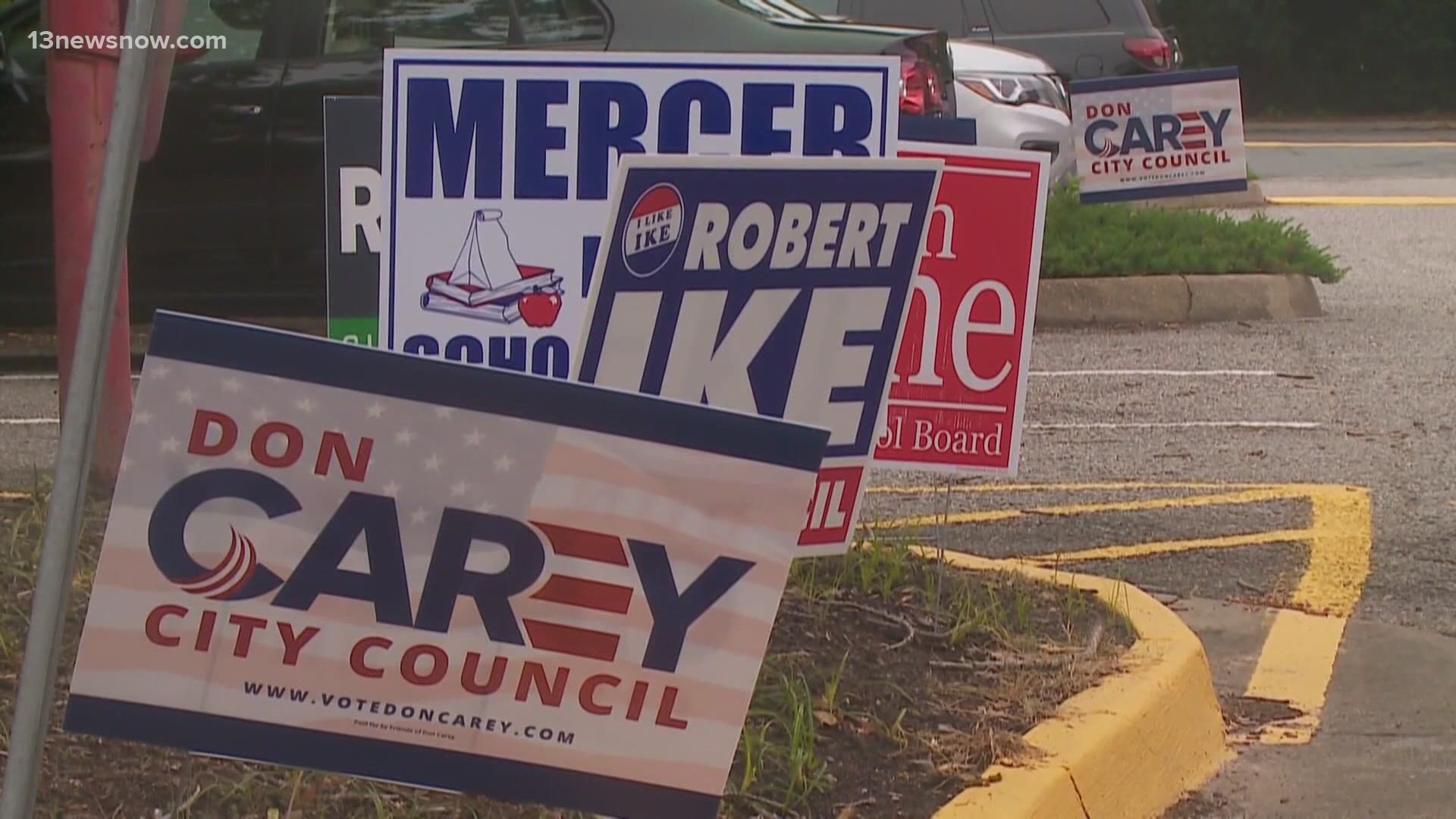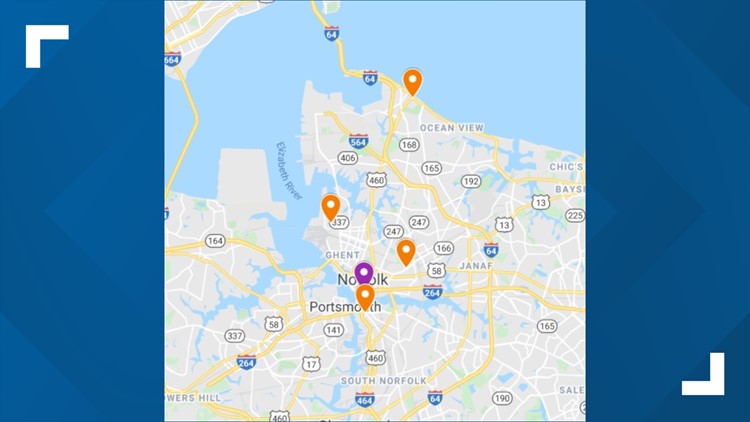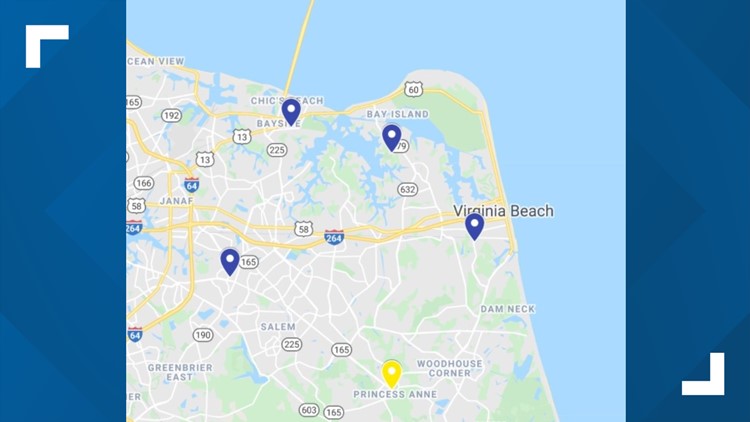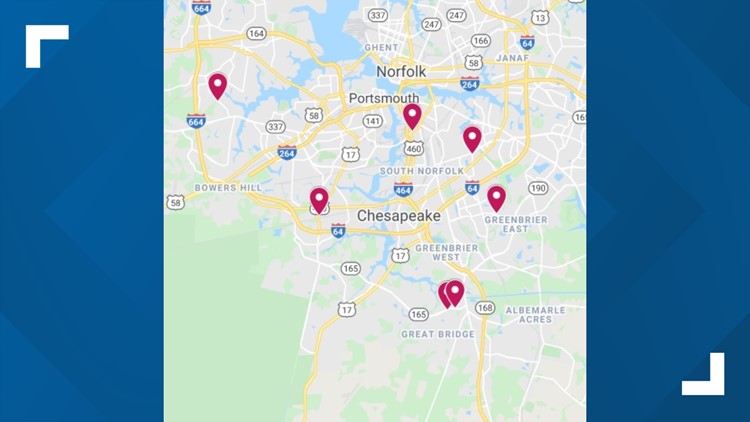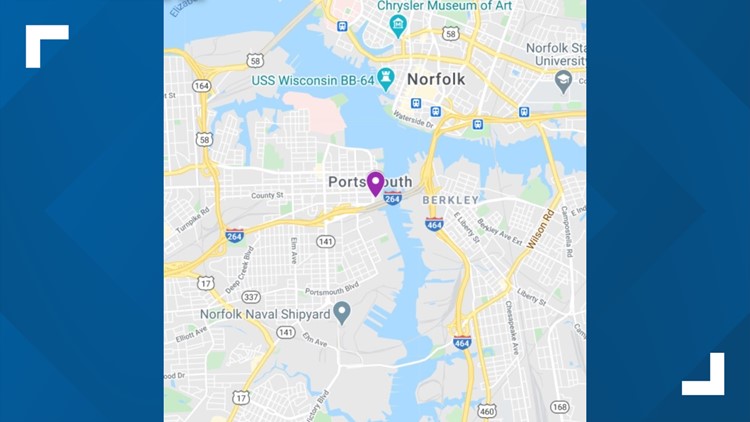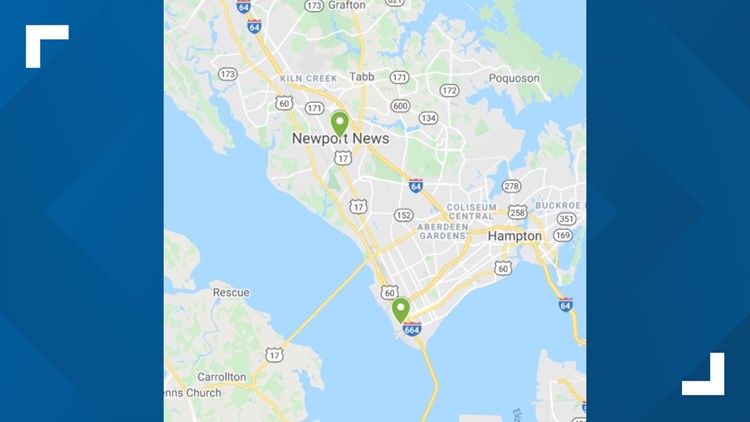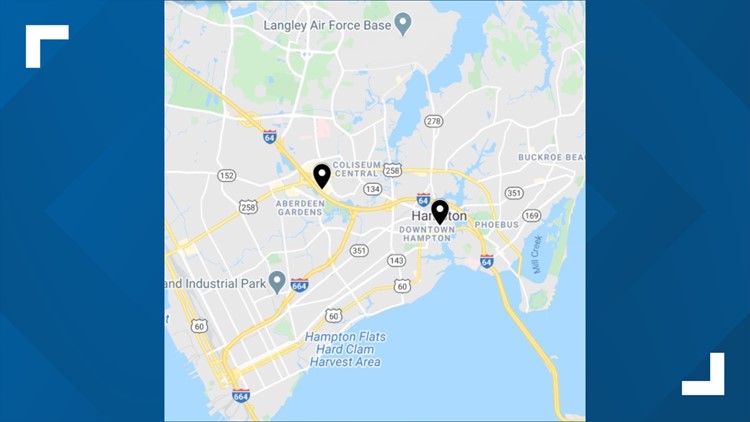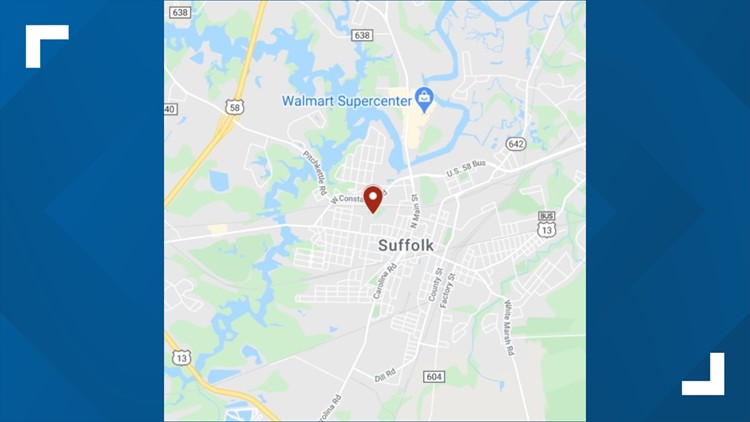VOTER'S GUIDE: Everything you need to know about registering and voting in Virginia and North Carolina
Deadlines and instructions on how to register to vote in North Carolina and Virginia for the November 2020 presidential election.
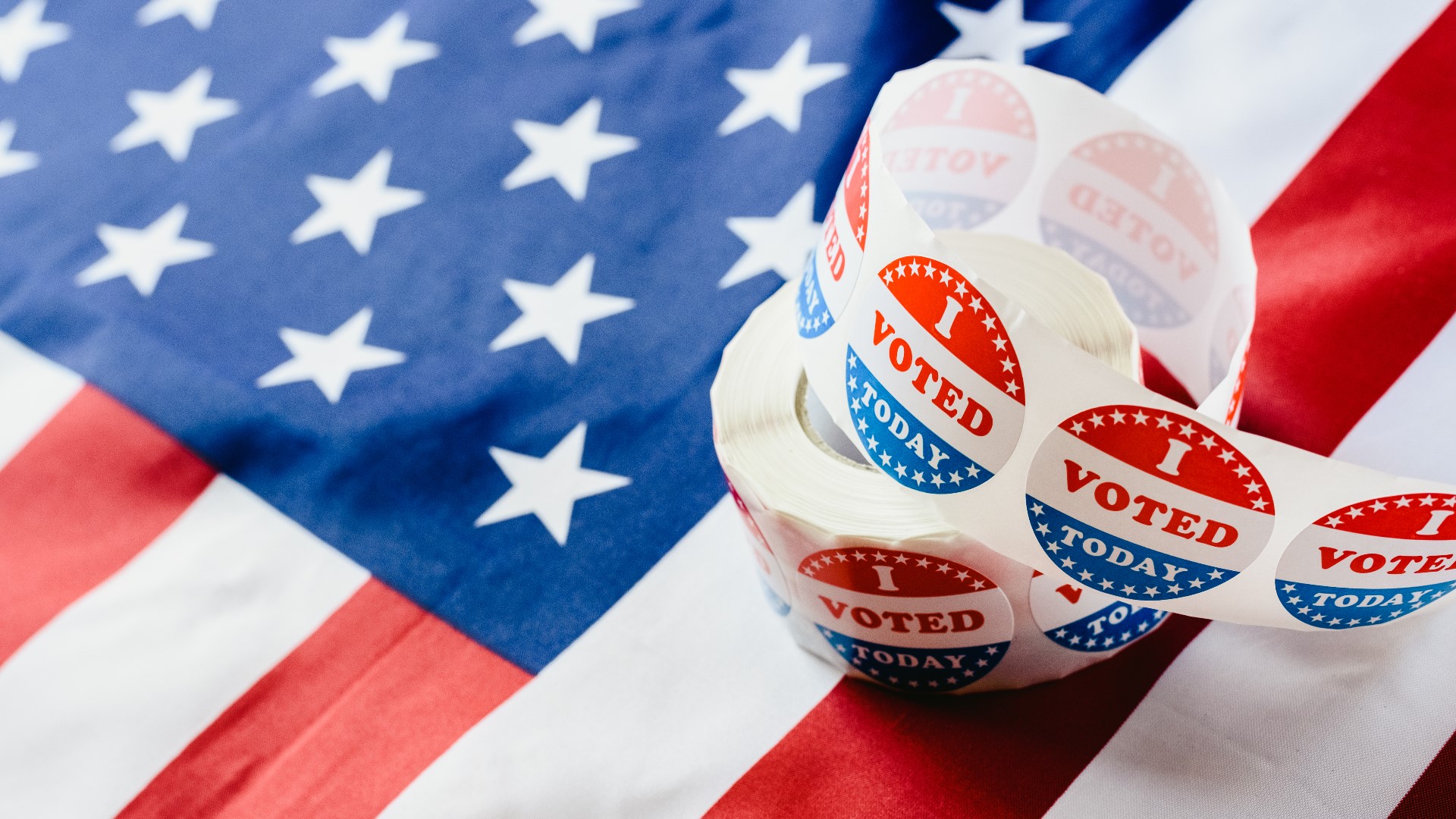
The 2020 election is on November 3, and if you want to cast your ballot, you must be registered.
There's a number of ways you can vote in North Carolina and Virginia, and there are deadlines if you want to be able to vote by Election Day.
For voters, it's important to know where and how to both register to vote and also to check if you are registered.
Virginia
- The deadline to register or update your registration for the November election is
Tuesday, October 13, 2020UPDATE: Because of technical issues on the 13th, Virginia has extended the deadline to register to vote to 11:59 p.m. Thursday, October 15, 2020! - If you register online, you'll need a state ID. You can register online at www.elections.virginia.gov/citizen-portal
- If you register in-person or through the mail, you'll need your social security number
- You can check if you're already registered at vote.elections.virginia.gov
- You may register to vote at your local Division of Motor Vehicles (DMV) office or request an application from your local general registrar
- Additional information about registering to vote in Virginia can be found here or at your local registrar's website
Voting By Mail:
Once you've registered, you can decide if you want to vote in person on Election Day or request a mail-in ballot. The first mail-in ballots won’t be sent out until mid-September.
In Virginia, you can apply online for an absentee by mail ballot at this link. The deadline to apply for a mail-in ballot is Friday, October 23.
If you do vote by mail, your ballot must be postmarked by 7 p.m. on Election Day, which is Tuesday, November 3, 2020.
Keep in mind that if you vote by mail, matching your signature on your mail-in ballot will be crucial for election accuracy in November. You'll have to sign your name to verify it’s your ballot. Election officials then match your handwriting to one of your signatures on file and if it doesn’t match, your ballot might not be counted.
A 2016 election review from the U.S. Election Assistance Commission report found that 50.5 percent of all rejected absentee ballots were discarded for signature problems, such as non-matching signatures or the lack of a voter or witness signature.
Virginia offers an online Track Your Ballot tool to determine the status of your mail-in ballot.
Voting In Person:
To vote in person on Election Day, you’ll need to show ID. Virginia law requires all registered voters to show identification. That can include your driver’s license, passport, or employer-issued photo ID.
A complete list of acceptable forms of identification is posted on the Virginia Department of Elections website.
If you're not sure where your polling place is on Election Day, you can also look it up on the Virginia DoE website.
Early Voting:
In Virginia, you can vote early at your local registrar’s office or at designated satellite locations. You do not have to have a reason why to vote early, and you don’t have to fill out an application. Just stop by and show your ID.
Early voting starts on September 18, 2020, and goes until the last Saturday before Election Day, which is October 31.
For more information, contact your local general registrar.
Where to vote early, drop off absentee ballots, in Hampton Roads
North Carolina
- The deadline to register for the November election is October 9
- You need both your state ID/license and social security number to register to vote online
- You can look up if you're registered via the state board of election's registration lookup tool
- A new State Board website has launched that is meant to easily guide residents on registering and voting in the upcoming election
If you miss the October 9 registration deadline, don't panic — you can still register to vote in person after that deadline using same-day registration in your county. Visit an early voting site in your county during the early voting period (October 15 through October 31).
Voting By Mail:
Once you've registered, you can decide if you want to vote in person on Election Day or request a mail-in ballot. The first mail-in ballots will begin to be sent out on September 4.
In North Carolina, details on completing the State Absentee Ballot Request Form can be found here. The deadline to apply for a mail-in ballot is 5 p.m. Tuesday, October 27.
To vote using an absentee ballot, the North Carolina State Board of Elections said each voter will need one witness for the November 2020 election. In other elections, the presence of two witnesses or one Notary Public is usually required.
NCSBE said the purpose of the witness is to confirm the voter is voting the ballot, not to see what the voter has marked. The witness must be 18 or over. Other restrictions are in place for witnesses in NC, which can be found here.
For civilian absentee voters, the container-return envelope with the voted ballot enclosed must be returned to the county board of elections no later than 5 p.m. on Election Day (November 3). Absentee ballots received after 5 p.m. on Election Day will be counted only if they are postmarked on or before Election Day and received by mail no later than 5 p.m. November 6.
Ballots without a postmark must be received by Election Day.
If North Carolina voters who requested absentee are not comfortable with taking the risk or can't vote in person on Election Day, they can deliver it in person. If delivering it in person, the voter or the voter's near relative can return it to the county board of elections. Likewise, the voter can deliver it in person to an early voting site during the early voting period.
Keep in mind that if you vote by mail, matching your signature on your mail-in ballot will be crucial for election accuracy in November. You'll have to sign your name to verify it’s your ballot. Election officials then match your handwriting to one of your signatures on file and if it doesn’t match, your ballot might not be counted.
A 2016 election review from the U.S. Election Assistance Commission report found that 50.5 percent of all rejected absentee ballots were discarded for signature problems, such as non-matching signatures or the lack of a voter or witness signature.
Voting In Person:
Polling places are open from 6:30 a.m. to 7:30 p.m. on Election Day. Any voter in line at 7:30 p.m. will be able to vote.
To vote in person on Election Day, North Carolina voters do not need to show ID.
If you're not sure where your polling place is on Election Day, you can use the North Carolina Department of Elections' Voter Search Tool or search using your address with the Polling Place Search.
Early Voting:
Early voting will be held in North Carolina from October 15 through October 31. You will need to check your county's hours, as they vary across the state.
You can look up your county's early voting sites by clicking on the NC Board of Elections interactive search and putting in your county's name.
As a reminder, you can apply for same-day registration during early voting!
Same-day registrants must attest to their eligibility and provide proof of where they live. A voter attests to their eligibility by completing and signing a North Carolina Voter Registration Application. The voter must prove their residence by showing any of the following documents with their current name and address:
- North Carolina driver’s license
- Other photo identification issued by a government agency. Any government-issued photo ID is acceptable, provided that the card includes the voter's current name and address.
- A copy of a current utility bill, bank statement, government check, paycheck, or other government document showing the voter’s name and address.
- A current college/university photo identification card paired with proof of campus habitation.
Within two business days of the person’s registration, the county board of elections will verify the registrant’s driver's license or Social Security number, update the voter registration database, search for possible duplicate registrations, and begin to verify the registrant’s address by mail.
The registrant’s ballot will be counted unless the county board of elections determines that he or she is not qualified to vote that ballot.
WCNC in Charlotte and WFMY in Greensboro, NC contributed to this report.


